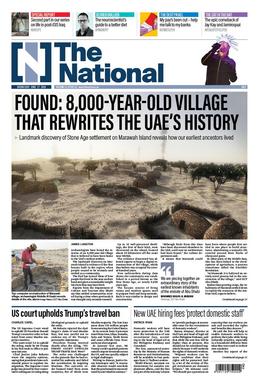Journalism is the production and distribution of reports on the interaction of events, facts, ideas, and people that are the "news of the day" and that informs society to at least some degree of accuracy. The word, a noun, applies to the occupation, the methods of gathering information, and the organizing literary styles.
Project Censored is an American nonprofit media watchdog organization. The group's stated mission is to "educate students and the public about the importance of a truly free press for democratic self-government."
Journalism scandals are high-profile incidents or acts, whether intentional or accidental, that run contrary to the generally accepted ethics and standards of journalism, or otherwise violate the 'ideal' mission of journalism: to report news events and issues accurately and fairly.
The mass media in China primarily consists of television, newspapers, radio, and magazines. Since the start of the 21st century, the Internet has also emerged as an important form of mass media and is under the direct supervision and control of the Chinese government and ruling Chinese Communist Party (CCP). Media in China is strictly controlled by the CCP, with the main agency that oversees the nation's media being the Central Propaganda Department of the CCP. The largest media organizations, including the China Central Television, the People's Daily, and the Xinhua News Agency, are all controlled by the CCP.

The news media or news industry are forms of mass media that focus on delivering news to the general public. These include news agencies, newspapers, news magazines, news channels etc.

In journalism and mass media, sensationalism is a type of editorial tactic. Events and topics in news stories are selected and worded to excite the greatest number of readers and viewers. This style of news reporting encourages biased or emotionally loaded impressions of events rather than neutrality, and may cause a manipulation to the truth of a story. Sensationalism may rely on reports about generally insignificant matters and portray them as a major influence on society, or biased presentations of newsworthy topics, in a trivial, or tabloid manner, contrary to general assumptions of professional journalistic standards.
Infotainment, also called soft news as a way to distinguish it from serious journalism or hard news, is a type of media, usually television or online, that provides a combination of information and entertainment. The term may be used disparagingly to devalue infotainment or soft news subjects in favor of more serious hard news subjects. Infotainment-based websites and social media apps are gaining traction due to their focused publishing of infotainment content, e.g. BuzzFeed.
Self-censorship is the act of censoring or classifying one's own discourse. This is done out of fear of, or deference to, the sensibilities or preferences of others and without overt pressure from any specific party or institution of authority. Self-censorship is often practiced by film producers, film directors, publishers, news anchors, journalists, musicians, and other kinds of authors including individuals who use social media.
Journalistic ethics and standards comprise principles of ethics and good practice applicable to journalists. This subset of media ethics is known as journalism's professional "code of ethics" and the "canons of journalism". The basic codes and canons commonly appear in statements by professional journalism associations and individual print, broadcast, and online news organizations.

Printed media in the Soviet Union, i.e., newspapers, magazines and journals, were under strict control of the Communist Party and the Soviet state. The desire to disseminate propaganda was believed to had been the driving force behind the creation of the early Soviet newspapers. Newspapers were the essential means of communicating with the public, which meant that they were the most powerful way available to spread propaganda and capture the hearts of the population. Additionally, within the Soviet Union the press evolved into the messenger for the orders from the Central Committee to the party officials and activists. Due to this important role, the Soviet papers were both prestigious in the society and an effective means to control the masses. However, manipulation initially was not the only purpose of the Soviet Press.
Independent media refers to any media, such as television, newspapers or Internet-based publications, that is free of influence by government or corporate interests. The term has varied applications. Within the United States and other developed countries, it is often used synonymously with alternative media to refer to media that specifically distinguish themselves from the mainstream media. In international development, the term independent media is used for the development of new media outlets, particularly in areas where there is little to no existing media presence.

Gatekeeping is the process through which information is filtered for dissemination, whether for publication, broadcasting, the internet, or some other mode of communication. The academic theory of gatekeeping may be found in multiple fields of study, including communication studies, journalism, political science, and sociology. Gatekeeping originally focused on the mass media with its few-to-many dynamic. Currently, the gatekeeping theory also addresses face-to-face communication and the many-to-many dynamic inherent on the Internet. Social psychologist Kurt Lewin first instituted Gatekeeping theory in 1943. Gatekeeping occurs at all levels of the media structure—from a reporter deciding which sources are presented in a headline story to editors choosing which stories are printed or covered. Including, but not limited to, media outlet owner and advertisers.
Leonard "Len" Downie Jr. is an American journalist who was executive editor of The Washington Post from 1991 to 2008. He worked in the Post newsroom for 44 years. His roles at the newspaper included executive editor, managing editor, national editor, London correspondent, assistant managing editor for metropolitan news, deputy metropolitan editor, and investigative and local reporter. Downie became executive editor upon the retirement of Ben Bradlee. During Downie's tenure as executive editor, the Washington Post won 25 Pulitzer Prizes, more than any other newspaper had won during the term of a single executive editor. Downie currently serves as vice president at large at the Washington Post, as Weil Family Professor of Journalism at the Walter Cronkite School of Journalism and Mass Communication at Arizona State University, and as a member of several advisory boards associated with journalism and public affairs.
Corporate censorship is censorship by corporations. It is when a spokesperson, employer, or business associate sanctions a speaker's speech by threat of monetary loss, employment loss, or loss of access to the marketplace. It is present in many different kinds of industries.
Community journalism is locally-oriented, professional news coverage that typically focuses on city neighborhoods, individual suburbs or small towns, rather than metropolitan, state, national or world news.

The National is a private English-language daily newspaper published in Abu Dhabi, United Arab Emirates. The newspaper is owned by Sheikh Mansour bin Zayed Al Nahyan, the deputy prime minister of the United Arab Emirates and member of the royal family of Abu Dhabi.

The Express Tribune is a daily English-language newspaper based in Pakistan. It is the flagship publication of the Daily Express media group. It is Pakistan's only internationally affiliated newspaper in a partnership with the International New York Times, the global edition of The New York Times. Headquartered in Karachi, it also prints copy from offices in Lahore, Islamabad, and Peshawar.
The following outline is provided as an overview of and topical guide to journalism:
This glossary of journalism is a list of definitions of terms and concepts used in journalism, its sub-disciplines, and related fields, including news reporting, publishing, broadcast journalism, and various types of journalistic media.

In June 2022, the Viking Saga, the student newspaper of Northwest High School in Grand Island, Nebraska, in the United States, published an issue that discussed Pride Month and other LGBTQ-related topics. In response, the school board and superintendent eliminated the school's journalism program and closed down the paper. The newspaper had been advised that transgender staff should not use their preferred names on bylines, and must use the names they had been given at birth.






